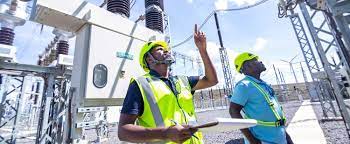In Kenya, 1.6 million people on low incomes now have access to electricity thanks to a project supported by the African Development Bank

ABIDJAN, Ivory Coast, August 23, 2023/ -- The second phase of the Last Mile Connectivity Project (https://apo-opa.info/44ggSH3), implemented in Kenya between 2016 and 2022, has helped improved access to electricity for low-income groups. At least 1.6 million people now have access to power, according to the Project Completion Report published by the African Development Bank (www.AfDB.org) on 11 August 2023.
Funded with a loan of $134.64 million from the African Development Bank Group, the project has added about 18 thousand kilometres of low-voltage lines to the distribution system, connecting some 322,279 households and small businesses to the national grid. An average household in Kenya has five people.
The project supported the re-establishment of the Kenya Power and Lighting Company (KPLC) tree seedling nursery, which had been in ruins due to drought from mid-2019 to the end of 2022 and locust infestation that stripped every young tree and crop around the nursery, as well as the impact of the Covid-19 pandemic.
The project awarded contracts worth around $9.07 million to local electricity suppliers, boosting economic activities.
The project has improved living conditions and helped develop socio-economic activities in the beneficiary communities. To most beneficiaries, lighting their homes was a dream come true and less expensive than using paraffin-fuelled lanterns (known as akaloboyo in the local language), with its associated health risks.
The project has spurred income-generating activities, such as poultry farming, livestock farming, and grass cutting for cattle and dairy farming. This has helped to reduce poverty, one of the leading causes of gender inequality. Activities such as joinery, arc welding and hairdressing salons are just some occupations buoyed by the availability of electricity. A group of 30 young people – half of them women – have started a poultry farm using funds raised by its members.
The project provided ready-to-use kits – including a socket and a light bulb- at no cost to households headed by women.
"Overall, despite the major challenges the country went through in 2017-2022, the project delivered almost all of the target outputs and outcomes, particularly those fundamental to the project's development objective," concludes the Project Completion Report.

